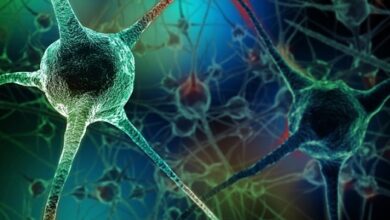Definitions
Definitions
These are the explanations or descriptions that clarify the meaning of a word, term, concept, or idea. They are used to provide a common understanding and language among people, especially in fields such as science, medicine, law, and technology. The Englopedia team will try to provide the definitions which will cover the whole sphere of knowledge.
A definition may be formal or informal, and may vary depending on the context and the intended audience. Formal definitions often use precise and technical language to provide a clear and unambiguous explanation of a term. Informal definitions, on the other hand, may use simpler language and examples to help the reader understand the meaning of a term.
Definitions can be found in various sources, including dictionaries, encyclopedias, textbooks, research papers, and websites. They are important in fields such as education, communication, and research, as they help people to understand and use language effectively and accurately.
The Definitions of Englopedia are important for several reasons, including:
Providing clarity: Help to clarify the meaning of a word or concept, ensuring that people understand the same thing when they use a particular term. This is particularly important in technical fields, where precise language and understanding are critical.
Establishing a common language: By defining terms, we can establish a common language that facilitates communication and understanding across different people, cultures, and languages.
Enhancing accuracy: Clear definitions help to eliminate ambiguity and promote accuracy in communication, research, and analysis. This is especially important in scientific and academic fields, where precision is essential.
Facilitating learning: Definitions are essential for learning and education, as they provide a foundation for understanding and applying new concepts and ideas.
Supporting decision-making: Clear definitions can help to inform decision-making by providing a clear understanding of the meaning and implications of different options.
Ensuring consistency: Definitions help to ensure consistency in the use of language, which can be important for legal or regulatory purposes.
-

What is Self portrait history purpose and Examples diff with selfie
Self portrait The simple definition of a self-portrait is a portrait of an artist created by the artist himself. (And in…
Read More » -
What is Authoritarianism History Characteristics and regime
Authoritarianism Authoritarianism is a leadership system whereby the leader has absolute and authoritarian power and implements his goals and rules without seeking…
Read More » -

What is Moral Authority Characteristics and Changing approaches
Moral Authority Moral authority is authority based on principles, or fundamental truths, that are independent of written or positive laws. As such,…
Read More » -

What is Autopoiesis with Properties and Characteristics
Autopoiesis Autopoiesis . It is the capacity of a system to, despite not being in equilibrium, maintain structural stability by absorbing energy…
Read More » -

What is Self taught being self taught famous self taught
Self taught The word autodidact also callled self taught comes from the Greek term autodidaktikos , where auto means “oneself” and didaktos means “teaching”. In…
Read More » -

What is Auditorium with Difference between auditorium and theater
Auditorium An auditorium is a space specially designed to host a wide variety of public events, such as concerts, recitals, conferences, colloquiums,…
Read More » -

What is Athletics history and Modalities of athletics
Athletics Athletics is a set of sports that consists of three main modalities: running, jumping and throwing. This is a sporting…
Read More » -

What is Athlete History types modalities difference with Sportsman
Athlete The word “ athlete ” is generally used to refer to people who practice any sport. Historically, the word comes from “athletics”…
Read More » -

Geographic Atlas with classification and Theatrum Orbis Terrarum
Geographic Atlas Geographical Atlas is the name given to a collection of maps of the various areas of the Earth , or of a…
Read More » -

What is Physical Activity benefits difference with physical exercise
Physical Activity Physical activity , according to the World Health Organization (WHO), is any bodily movement produced by skeletal muscles that…
Read More »